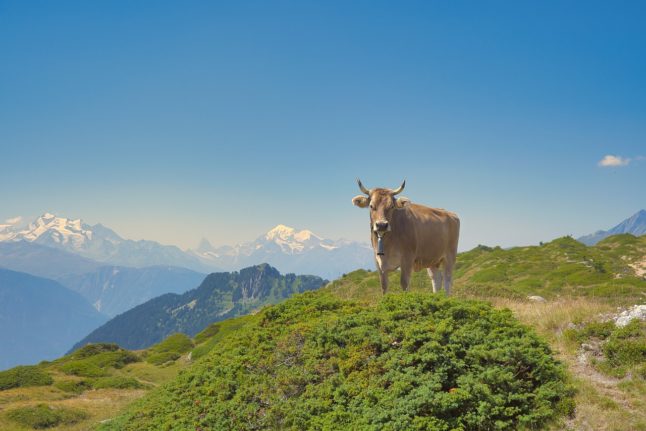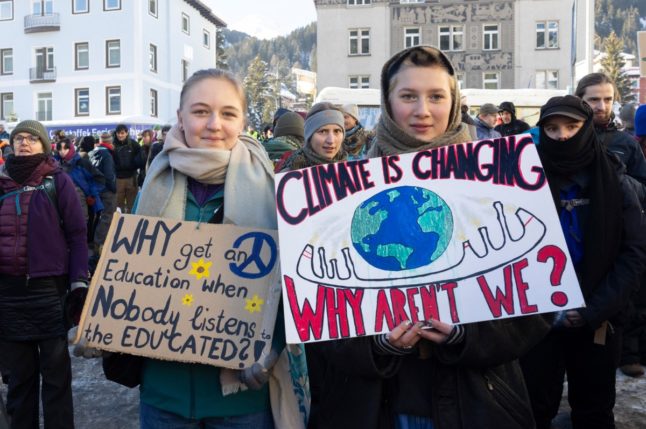Why are Swiss Alpine pastures in the news?
On Wednesday, UNESCO announced it had inscribed 45 elements on the Representative List of the Intangible Cultural Heritage of Humanity during its annual session held in Kasane (Republic of Botswana).
The list comprises cultural “practices and expressions [that] help demonstrate the diversity of this heritage and raise awareness about its importance.”
Among this year’s new elements were two Swiss entries, one of which is the country’s popular Alpine pasture season.
What is Switzerland’s Alpine pasture season?
As an exemplary tradition of the Swiss mountain areas, the Alpine pasture season combines traditional skills, customs and rituals related to Alpine farming in Switzerland.
The Alpine pasture season takes place from around May to October in Switzerland when various cattle, sheep and goats are relocated to high-altitude pastures (between 600 metres and 2900 metres) to graze on fresh forage and herbs that thrive in the summer months.
The Alpine farmers, or Alpacists, then look after the livestock and their surroundings, produce different dairy products, and even invite visitors to observe the animals and farming practices.
“The practice contributes to the preservation of natural landscapes and creates economic and social ties between the local populations and the Alpine farmers. It has given rise to the knowledge and skills needed to maintain the sites, as well as to a variety of social and religious practices such as rituals, prayers and blessings, traditional clothing, livestock competitions and local festivities,” UNESCO writes.
Some of these practices also include “traditional clothing, livestock competitions and local festivals” like the Alpine cattle ascent (inalpe) and the Alpine cattle descent (désalpe) where – depending on the region – the most beautiful cow of the herd is crowned.
Festivals to celebrate the herd animals heading to their summer pastures play a vital role for farmers and locals as they highlight craft practices that are otherwise rarely observed in Switzerland.
“The knowledge, skills, and customs of the Alpine pasture season, including farming and cheesemaking, are often transmitted informally, within families and their seasonal employees or among members of Alpine societies and cooperatives. They are also transmitted through regional training centres, cultural events and tourism,” UNESCO says.
READ MORE: Why are cows so important in Switzerland?
UNESCO also recognises Swiss irrigation technology
Switzerland’s cattle weren’t the only ones to join UNESCO’s Representative List of the Intangible Cultural Heritage of Humanity this year.
Its centuries-old irrigation technology from Bern and Lucerne also made the cut.
The multinational agricultural technology was proposed for inclusion on the UNESCO list by Belgium, Italy, Luxembourg, the Netherlands, Austria, Switzerland and Germany, zentralplus reported.
According to UNESCO, traditional irrigation involves temporarily digging small ditches and channels to distribute water from as springs, rivers, streams, and glaciers to meadows.
This sustainable form of water supply, which serves to cultivate dry areas, also has a positive effect on biodiversity.
In Switzerland, this technology is celebrated with various social gatherings and other festivities to mark the start and ending of the water season.
UNESCO’s Representative List of the Intangible Cultural Heritage of Humanity also includes six other Swiss entries.
These include the Craftsmanship of mechanical watchmaking and art mechanics (2020), the Holy Week processions in Mendrisio (2019), Alpinism (2019), the Avalanche risk management (2018), Art of dry stone walling, knowledge and techniques (2018), the Basel Carnival (2017), and the Winegrowers’ Festival in Vevey (2016).
Since 2020, the craft techniques and customary practices of cathedral workshops, or Bauhütten, in Europe, know-how, transmission, development of knowledge and innovation – which include Switzerland – also joined UNESCO’s Register of Good Safeguarding Practices and falls within the agency’s Intangible Cultural Heritage.
READ MORE: The 13 world heritage sites in Switzerland you need to see



 Please whitelist us to continue reading.
Please whitelist us to continue reading.
Member comments